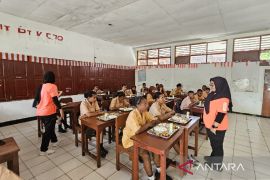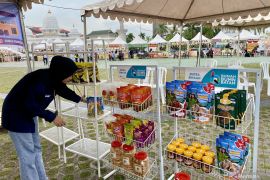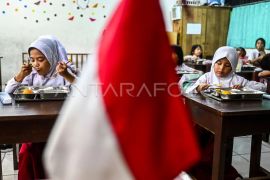"Farmers must be empowered so that the program will not end up for land distribution only. It is useless if plots of land have been distributed to farmers but they are not empowered and given guidance," Indef researcher Bhima Yudhistira Adhinegara said at his office here on Thursday.
He stated that without empowerment and guidance, it may not be possible that the land that has been distributed would improve the welfare of farmers.
Farmers can even regress from that before they are allocated plots of land through the program.
Adhinegara noted that the agrarian reform by the Federal Land Development Authority (Felda) in Malaysia could serve as an example or model for the program in Indonesia.
Felda in Malaysia has a farmers development institution system (JKKN), which shows that the formation of farmers group is the prerequisite to the success of the agrarian reform.
The aim of the establishment of a farmers group, with 10 to 15 members, will enable the government to provide them guidance or technical assistance.
Farmers groups also make it easier for the government to carry out supervision and ensure that lands remain productive and the ownership remains unchanged.
Therefore, it is important to form a new institution which has the function to empower farmers and ensure the absorption of all farmers' products by the market.
The institution can take the form of agrarian reform management authority, which is directly accountable to the president.
"This is to ease the issuance of regulations and coordination among government institutions," he remarked.
The agrarian reform program is a just an economic program in the agrarian sector through a land allocation process and consolidation of land ownership and land utilization.
Through the program, the government will focus on an agrarian reform object on 9 million hectares of land and on 12.7 million hectares of social forests.(*)
Editor: Heru Purwanto
Copyright © ANTARA 2017











